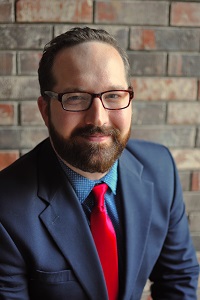ISU Psychology Clinic
CONTACT US:
Phone: (208) 282-2129
Fax: (208) 282-5411
Address:
1400 E. Terry Dr., Bldg. 63
Pocatello, ID 83209
5th Floor, Garrison Hall
Directions:
HOURS:
Academic Schedule:
Monday - Friday
9:00 AM - 1:00 PM
2:00 PM - 6:00 PM
Summer Schedule:
Monday - Thursday
9:00 AM - 6:00 PM

Experience compassionate, evidence-based care at ISU’s Psychology Clinic. Offering expert psychological testing for DSM-5 diagnoses and personalized treatment for children, adolescents, adults, and families, we are committed to enhancing mental well-being.
Since 1978, the Psychology Clinic has served as a premier training and behavioral health care center, linked with the ISU Psychology Department. Our clinic provides an affordable, high-quality treatment option for Southeastern Idaho, while offering hands-on training for doctoral students in clinical psychology.
Open to the community, not just university affiliates, our clients work closely with skilled psychology trainees under the supervision of experienced and licensed clinical psychologists, ensuring a collaborative approach to resolving mental health challenges and achieving personal growth.
Idaho State University recognizes that our mission is to care, support, and educate individuals and families affected by health conditions that diminish their quality of life. We acknowledge that individuals may experience discrimination in the healthcare system, which can adversely affect their health outcomes. We recognize that both conscious and unconscious discrimination occur. Overt and conscious discrimination is not tolerated. Unconscious or unintentional discrimination need to be identified, challenged, and addressed. We believe everyone has the right to be healthy and have access to the resources they need.
We strive to achieve the following commitments to our colleagues and our patients:
- Goal 1: We do not discriminate on the basis of age, race, ethnicity, religion, culture, language, physical or mental disability, socioeconomic status, sex, sexual orientation and gender identity or expression.
- Goal 2: All patients receive the highest level of care possible delivered in a patient and family friendly approach using evidence-based medicine.
- Goal 3: We recognize racism, not race, as the cause for healthcare disparities and therefore will examine our healthcare treatment plans for bias.
- Goal 4: We will track information on factors that create disparities as they relate to health outcomes to better identify how we may actively seek to eliminate such disparities in healthcare.
- Goal 5: We intend to improve the diversity of our workforce to reflect the community we serve.
- Goal 6: We commit to listen, learn, and seek to understand in order to create impactful and sustainable positive change.
- Goal 7: We will recognize and reward practices that promote health equity.
Definition of health equity: The state in which everyone has a fair and just opportunity to attain their highest level of health. https://www.cdc.gov/
While the terms equity and equality may sound similar, the implementation of one versus the other can lead to dramatically different outcomes for marginalized people: Equality means each individual or group of people is given the same resources or opportunities. Equity
Services
Clinical services provided primarily reflect the specialty areas of the faculty members of the Psychology Department at ISU. Providers may offer psychological testing for DSM-5 diagnoses and evidence-based treatments for children, adolescents, adults, and families. Our current offerings are listed below. Please note that many of our services are available on a semester basis and may have a wait list. Wait times vary depending on the frequency and demand for each service. We strive to accommodate all clients as efficiently as possible and appreciate your patience. All assistance and records are confidential, except as excluded by law.
- Autism
- ADHD
- Learning Disorders
- Intellectual Disabilities
-
Educational Disabilities Assesments
- Learning Disorders
- Parent-Child Interaction Therapy (PCIT)
- Sleep Problems
- Depression
- Anxiety
- Interpersonal/Relationship Issues
- Impulse Control Difficulties
Make an Appointment
Call (208) 282-2129 to schedule an appointment. If you are unable to speak with someone, you can leave a message on our confidential voice mail system. (Some services may have a waiting list.)
- Clinic Hours: Monday - Friday, 9:00 AM - 1:00 PM & 2:00 PM - 6:00 PM (closed from 1:00-2:00 PM)
Consent Forms
Directions and parking
Patient parking is available in the areas designated clinic patient parking in the East or West lots of Garrison Hall (Building 63). You will need to obtain a parking pass from the Clinic Secretary before parking. Look for the white "Patient/Client Parking" signs. These are the first six parking spots on the right hand side of the lot. Please place the Guest Parking Pass on the left side of your dashboard to avoid receiving a parking ticket. Unfortunately, we can NOT reverse parking tickets. Please see ISU Psychology Clinic Directions for more detailed instructions.
Supervising Psychologists

Robert Rieske, Ph.D.
Clinic Director/Assistant Professor
Dr. Rieske and his team offer specialized, comprehensive assessments for Neurodevelopmental Disorders with a particular focus on Autism across the lifespan—from 12 months of age thru adulthood. Our comprehensive evaluations include the Autism Diagnostic Observation Schedule (ADOS-2), along with personalized cognitive, developmental, adaptive, achievement, language, and neuropsychological assessments tailored to meet each client’s unique needs.

Sarah Emert, Ph.D.
Assistant Professor, Clinical Psychology
Dr. Emert specializes in the assessment and treatment of sleep disorders using behavioral sleep medicine interventions, including Cognitive Behavioral Therapy for Insomnia (CBTi). She utilizes evidence-based techniques to help patients better manage positive airway pressure (PAP) desensitization, and circadian rhythm disorders such as delayed sleep-wake phase disorder and shift work sleep disorders.
Dr. Emert also has expertise in the use of integrated/transdiagnostic treatment approaches for adults and older adolescents presenting with psychological concerns, including anxiety disorders, mood disorders, general adjustment concerns, and health conditions such as chronic pain and smoking cessation.

Steven Lawyer, Ph.D.
Professor
Dr. Lawyer uses evidence-based integrative cognitive-behavioral therapy approach to help adults with a broad range of struggles but with a particular focus on problems with anxiety, depression, and trauma.

Shannon Lynch, Ph.D.
Professor
Dr. Lynch has been licensed as a clinical psychologist in Idaho since 2004. Dr. Lynch works with students to provide adolescent and adult individual treatment and couples and group treatment. Her areas of expertise include interpersonal and relationship problems, trauma, interpersonal violence, and PTSD.

Samuel Peer, Ph.D.
Assistant Professor / Director of Clinical Training
Dr. Peer did his Clinical Psychology Ph.D. at Central Michigan University and Child Clinical Psychology residency at the Medical University of South Carolina. He has over 19 years of experience providing therapy to children, adolescents, and their families in a multitude of settings, including the foster system, residential and psychiatric care, child trauma hospitals, and schools. He is trained in all 3 best-practice child trauma treatments; namely: Parent-Child Interaction Therapy (http://www.pcit.org/what-is-pcit.html); Trauma-Focused Cognitive Behavioral Therapy (TF-CBT; https://tfcbt.org/about/), and Alternatives for Families: Cognitive Behavioral Therapy (AF-CBT; https://www.afcbt.org/about/aboutafcbt); as well as several other evidence-based treatments for youth, couples, and families. Clinically, his practicum team specializes in providing effective treatment for youth ages 2–12 that have problems related to defiance, hyperactivity, aggression, temper, inattention, social deficits, trauma, autism, anxiety, and/or depression.

Joshua Swift, Ph.D.
Associate Professor
Dr. Joshua Swift is a licensed psychologist who specializes in psychotherapy with adult clients experiencing depression, anxiety, or general interpersonal, role, or emotional distress. His approach to treatment is integrative, relying heavily on evidence-based client-centered and cognitive-behavioral techniques. He places a strong emphasis on patient-centered care, including involving patients in the decision-making process and utilizing client feedback obtained through routine outcome monitoring.
Staff

Billing
- Our clinic does not accept or bill insurance. Since we are a training facility with student therapist involvement, insurance companies are often not obligated to cover our services. Upon request, we will assist clients who wish to file insurance claims, but we are unable to file a claim for you.
Fees
- Fees at the ISU Psychology Clinic are based on a sliding fee scale similar to that used by public sector agencies such as the Department of Health and Welfare. Separate fees have been established for special services.
-
ISU students, faculty and staff receive a fee reduction, however, students should always contact the ISU Counseling and Testing Center (208-282-2130) where services are provided to students at no cost.
-
All clients sign an informed consent and fee agreement. Clients are expected to pay at least half of their assessment fee when services commence.
-
Some faculty may see patients themselves through the Faculty Practice Plan (FPP); patients participating in the FPP are billed at the lower limit of prevailing community rates.
Payment
- Your current balance can be retrieved from your last monthly statement or by contacting the clinic directly.
- Payment is expected at the time of service. We accept cash, credit cards, checks, and online payments at the link below.
Pay Online
No Surprise Billing Act
Clinic Training Admission and Facilities
The Psychology Clinic is a training facility. Special conditions surrounding the training function of the clinic (e.g., role of students, research options, protocol limitations) are explained at the time of initial consultation if applicable.
The physical structure includes six standard treatment/consultation rooms, two testing areas, a child playroom, and several group/conference rooms, all equipped with standard observational facilities. Our facility includes a computer lab and library for graduate student use, as well as video conferencing capabilities.
Library searches using Psych INFO and medical databases can also be conducted on site.
The clinic exposes psychology students to a variety of different training experiences, providing both individual and group supervision in practicum. Specialty workshops by external faculty (e.g., crisis management, Pediatric Health Psychology) are provided annually.
For further information about our clinical training program at ISU and the admissions process, please refer to our Clinical Psychology page.
Emergencies
Psychology Clinic during Emergency Situations
The Psychology Clinic is not equipped to offer treatment to individuals who are presently a danger to themselves or others or need immediate emergency intervention. Emergency services are provided by:
| Immediate Emergency | 911 |
| Portneuf Medical Center | (208) 239-1800 |
| Human Development Center | 8:00 AM - 5:00 PM Weekdays |
|
(208) 234-7900 |
| Idaho CARE Line | Dial 211 |
| National Suicide Prevention Lifeline and/or the Veterans Crisis Line | 988 (call or text) |
| Southeastern Idaho Behavioral Crisis Center for Adults | 208-909-5177 |
|

